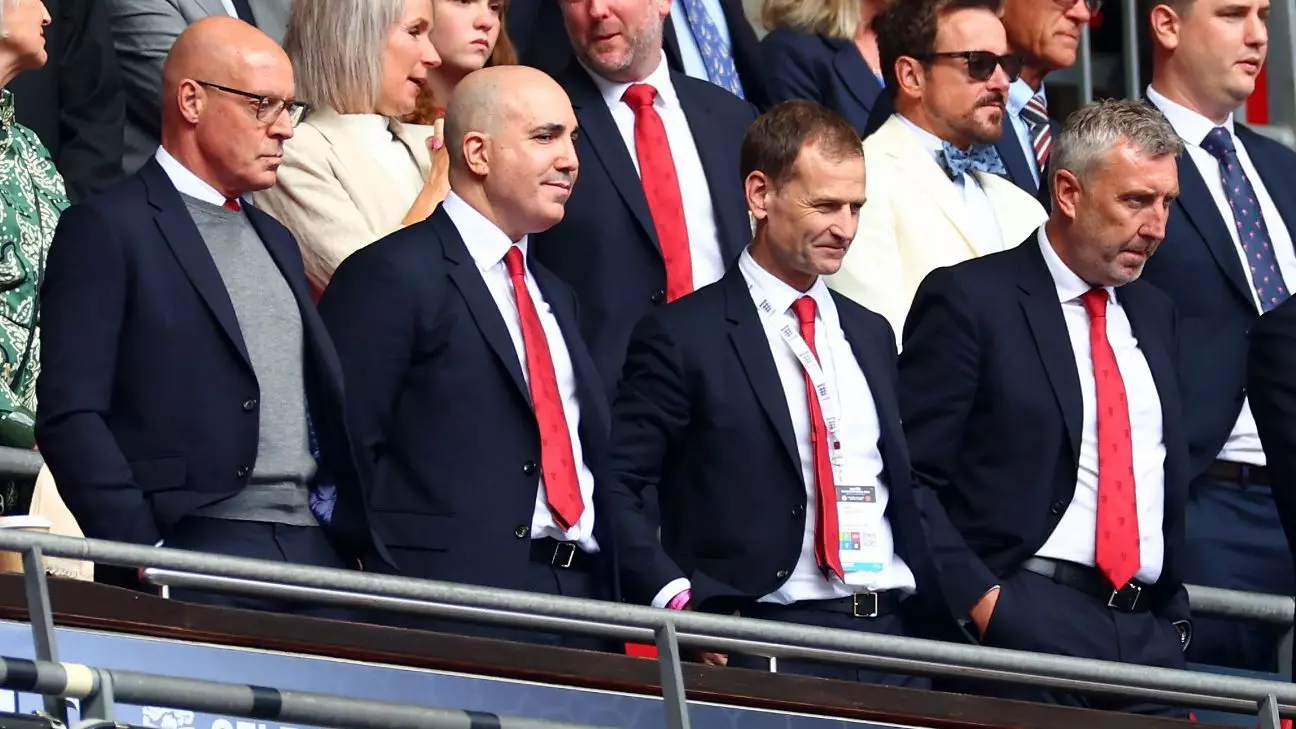The performance of a football club heavily hinges not just on the head coach but also significantly on the decisions made by the sporting director. This intricate relationship is highlighted in Manchester United’s recent decision to part ways with Dan Ashworth, indicating the urgency of the club to reclaim its competitive edge. With Ruben Amorim now at the helm, the club’s structure is undergoing considerable changes, reflective of a management that prioritizes quick, effective reform over a slower, more gradual approach.
Ashworth’s rapid exit, just five months after being brought in from Newcastle United, underscores a growing dissatisfaction with his capabilities. Reports suggest that Sir Jim Ratcliffe, the minority owner and principal decision-maker, found Ashworth lacking in characteristics essential for the role, resulting in a strikingly swift dismissal. This urgency highlights the club’s need for immediacy in achieving competitive results amidst a backdrop of underwhelming player acquisitions made during Ashworth’s brief tenure.
The recruitment strategy implemented under Ashworth led to a staggering £182 million outlay on five players during the summer transfer window. However, performance has been largely disappointing, with only defender Noussair Mazraoui showing promise relative to his cost, casting doubt on Ashworth’s efficacy in the role. His involvement in the club’s restructuring process became even more contentious when he contributed to the sacking of manager Erik ten Hag, adding to the instability surrounding his position.
Restructuring at Leadership Levels
The rise of INEOS as the new governing entity at Manchester United has led to a seismic shift in leadership and operational strategies at the club. Following the acquisition of a minority stake, Ratcliffe’s group has dismantled the previous management structure. Notably, this has included the departures of key individuals, emphasizing a decisive break from the past as they seek a new path to competitiveness. The club is searching for expertise that has been noticeably absent since Sir Alex Ferguson retired, leading to a fragmented and unsuccessful football strategy.
In seeking to fill the void, INEOS has made a series of high-profile appointments, bringing in talents from various clubs with a reputation for their acumen. Ashworth’s background as a former technical director at the FA and sporting director at Brighton and Newcastle positioned him as a fitting addition. However, his quick exit demonstrates that even elite resumes do not guarantee success if the fit within the club’s current environment is questionable.
The Importance of Data-Driven Decisions
A central facet of modern football management is the reliance on data analytics, an area in which Manchester United appears to lag significantly. Ratcliffe has drawn attention to this deficit, emphasizing that the club’s current methodologies are insufficient for the contemporary landscape of professional football. As success increasingly hinges on sophisticated data analysis, Ashworth’s apparent inability to leverage these resources effectively raises questions about his suitability for the role.
In contrast, the approach taken by the likes of Michael Edwards at Liverpool, who effectively utilized data-driven insights to build a winning team, illustrates the importance of evolving recruitment strategies. This highlights a critical juncture for United; without a similar expertise in place, the club risks falling further behind, not just on the pitch but in overall operational efficacy.
As Manchester United moves into a new chapter following Ashworth’s departure, the focus must shift to identifying a sporting director who can effectively harness the tools of modern football administration. The future of this iconic club relies on its ability to recruit not only talented players but also personnel capable of transforming the club’s fortunes through informed decision-making. With significant financial strains looming due to recent losses, the importance of astute recruitment is underscored—the need for strategic investments that yield immediate returns is paramount.
The changes at the management level at Manchester United reflect a wider trend in football where the influence and importance of sporting directors cannot be overstated. The club’s journey back to prominence will depend heavily on its ability to capitalize on data, identify talents, and cultivate a strong coherent strategy that aligns the direction of the footballing side with the ambitions of its ownership. As the dust settles post-Ashworth, the spotlight now turns towards finding leadership capable of steering Manchester United towards a brighter and competitive future.

Leave a Reply